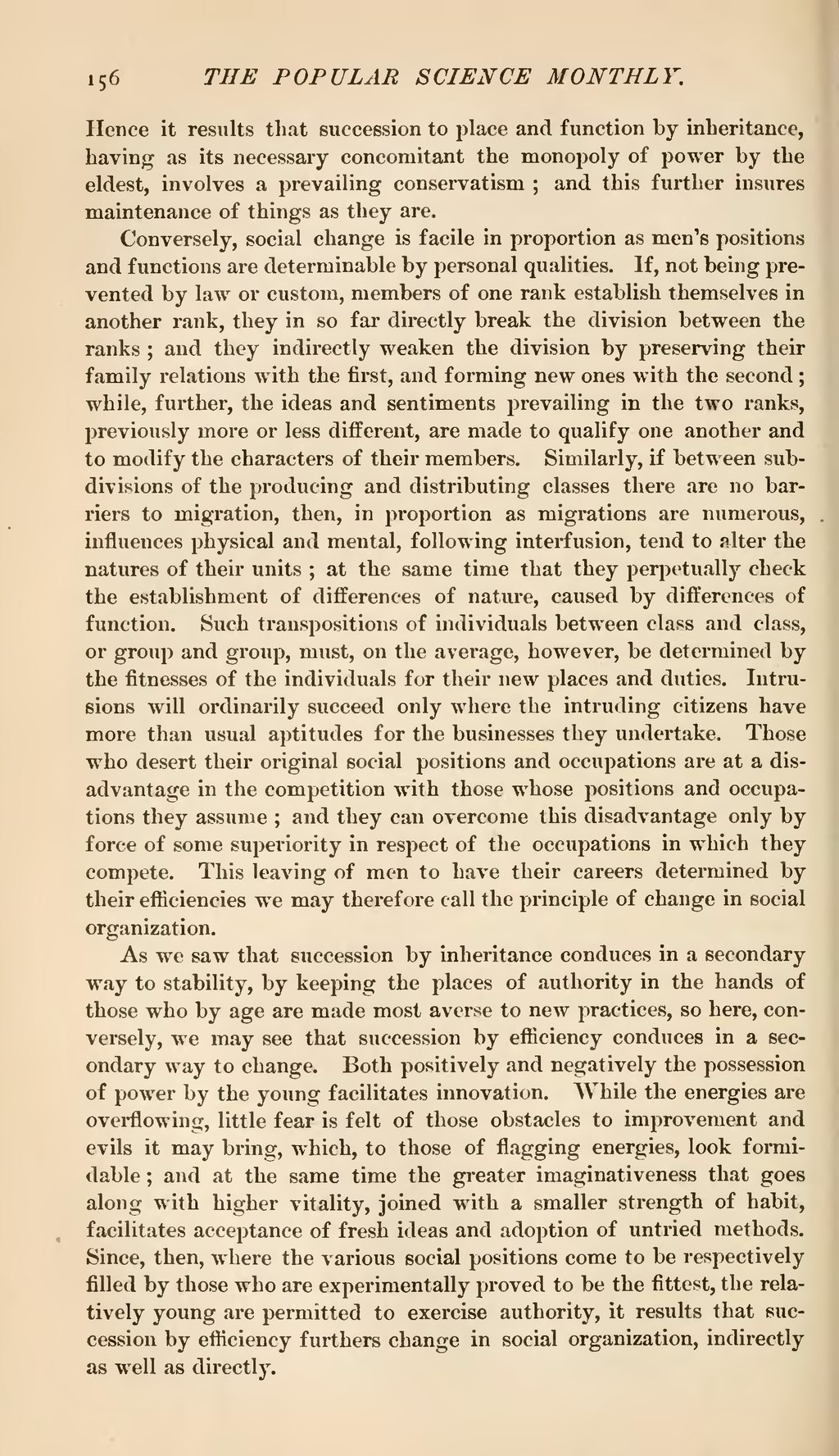Hence it results that succession to place and function by inheritance, having as its necessary concomitant the monopoly of power by the eldest, involves a prevailing conservatism; and this further insures maintenance of things as they are.
Conversely, social change is facile in proportion as men's positions and functions are determinable by personal qualities. If, not being prevented by law or custom, members of one rank establish themselves in another rank, they in so far directly break the division between the ranks; and they indirectly weaken the division by preserving their family relations with the first, and forming new ones with the second; while, further, the ideas and sentiments prevailing in the two ranks, previously more or less different, are made to qualify one another and to modify the characters of their members. Similarly, if between subdivisions of the producing and distributing classes there are no barriers to migration, then, in proportion as migrations are numerous, influences physical and mental, following interfusion, tend to alter the natures of their units; at the same time that they perpetually check the establishment of differences of nature, caused by differences of function. Such transpositions of individuals between class and class, or group and group, must, on the average, however, be determined by the fitnesses of the individuals for their new places and duties. Intrusions will ordinarily succeed only where the intruding citizens have more than usual aptitudes for the businesses they undertake. Those who desert their original social positions and occupations are at a disadvantage in the competition with those whose positions and occupations they assume; and they can overcome this disadvantage only by force of some superiority in respect of the occupations in which they compete. This leaving of men to have their careers determined by their efficiencies we may therefore call the principle of change in social organization.
As we saw that succession by inheritance conduces in a secondary way to stability, by keeping the places of authority in the hands of those who by age are made most averse to new practices, so here, conversely, we may see that succession by efficiency conduces in a secondary way to change. Both positively and negatively the possession of power by the young facilitates innovation. While the energies are overflowing, little fear is felt of those obstacles to improvement and evils it may bring, which, to those of flagging energies, look formidable; and at the same time the greater imaginativeness that goes along with higher vitality, joined with a smaller strength of habit, facilitates acceptance of fresh ideas and adoption of untried methods. Since, then, where the various social positions come to be respectively filled by those who are experimentally proved to be the fittest, the relatively young are permitted to exercise authority, it results that succession by efficiency furthers change in social organization, indirectly as well as directly.

